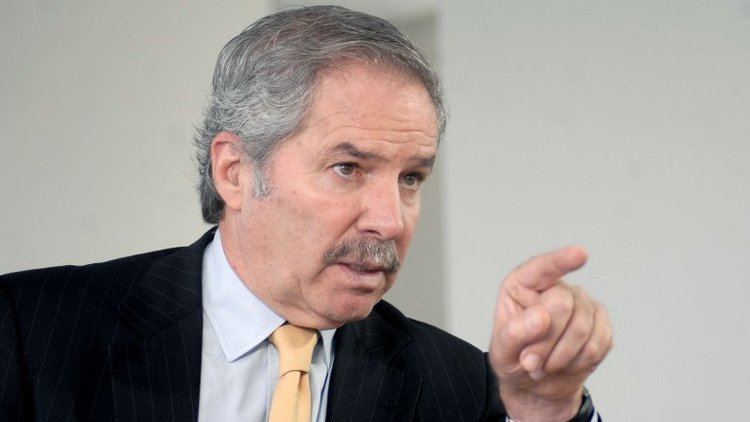RIO DE JANEIRO, BRAZIL – Argentinean Foreign Minister Felipe Solá strongly criticized the Organization of American States (OAS) for its position on what occurred in Bolivia a year ago, when Evo Morales was forced to leave the country and Jeanine Áñez assumed the presidency: “What happened in Bolivia would not have been possible without the OAS’ consent. Its duty is to denounce coups, not sponsor them.”

In this context, the official celebrated Luis Arce’s triumph and Evo Morales’ return to his country, which took place on foot from Argentina province Jujuy, while being escorted by President Alberto Fernández: “We will work in this new political stage in the continent to recover the lost unity, with the will of a strong and responsible integration.”
It is not the first time that Felipe Solá targets Luis Almagro, the OAS Secretary General. Days ago, when speaking before the organization’s plenary session, he attacked the leader’s position on Venezuela, as he considers that economic, political, cultural and legal relations are not being promoted: “He does not comply with his mandate as he chooses personal positions that ultimately feed the problem that must be solved.”
The Argentine Foreign Minister’s objections to Almagro are linked to the OAS Secretary General’s decision to proceed once again with a resolution that denounces “the lack of minimum democratic conditions to ensure free, fair and transparent elections in Venezuela,” which is endorsed by Venezuela’s self-declared interim president Juan Guaidó, whom Argentina does not recognize.
On Sunday, November 8th , Luis Arce won the presidential elections in Bolivia with 55.1 percent of the votes, and his victory brought the MAS party, headed by Evo Morales, back to power after Morales went into exile in Argentina.
On December 12th, 2019, amid great political and social tension and pressured by the Armed Forces, Morales resigned from the Presidency, denounced a coup d’état and fled to Mexico, where he remained for a month until he moved to Argentina through the efforts of Alberto Fernández, who had only been in power for two days.
In an emotional and politically charged event, Argentina’s president accompanied Morales from La Quiaca, Jujuy, to the Bolivian border: “Alberto Fernández saved my life. Thank you very much”, said the ex-president of Bolivia.
Alberto Fernández recalled that Argentina and Bolivia are “part of a big nation, a nation that wants to embrace everyone, not only some.” It was a clear message of unity between both countries that, with the return of Morales and Arce’s MAS to power, will imply the relaunching of diplomatic relations that had been interrupted with the process headed by Jeanine Áñez.
The head of state attended Arce’s inauguration the day before and then, back in Argentina, dined in Jujuy with Morales and the delegation that participated in the ceremony in Bolivia.
The Argentinean president left very pleased with the displays of affection he received in the Bolivian capital, particularly from the MAS supporters. There were shouts of gratitude and applause both on the streets and in the Legislative Assembly for Alberto’s recent gestures towards Evo.
“He [Morales] will return to his home, from where he should never have left. There are many of us Argentineans who love and value him,” said Alberto Fernández during the meeting. The President was joined by Foreign Minister Felipe Solá; Ministers Eduardo de Pedro (Interior) and Elizabeth Gómez Alcorta (Women, Gender and Diversity); the Secretary of Strategic Affairs, Gustavo Béliz; the Secretary of Communication, Juan Pablo Biondi; Senator Jorge Taiana and Deputy Eduardo Valdés.
Arce’s government
The new president of Bolivia will face multiple crises from the first minute of his five-year term. The first is political and social, considering that there are still citizen protests denouncing fraud and demanding an audit of the last elections.
The MAS’ clashes with its opponents have been intense after the elections were annulled last year, when the provisional government of Jeanine Áñez was installed. Since then Bolivia has been afflicted by increasing social tensions, police violence that has led to deaths and complaints from both sides, as well as political persecution through the court system. On the eve of the inauguration, liability proceedings for the outgoing president and her Ministers were dismissed, while prominent ex-officials of former President Evo Morales were cleared from prosecution. This situation has sparked an avalanche of criticism for the lack of independence and mistrust in the Bolivian judiciary.
Yet another of Luis Arce’s main challenges is the deep economic crisis aggravated by the coronavirus pandemic, which forced a harsh seven-month confinement, resulting in a GDP decline of -11 percent in the first semester of the year, while the fiscal deficit exceeded ten percent and unemployment reached 12 percent. Inflation is still low and it is estimated that until the end of the year GDP will drop by -6 percent.
Source: infobae

